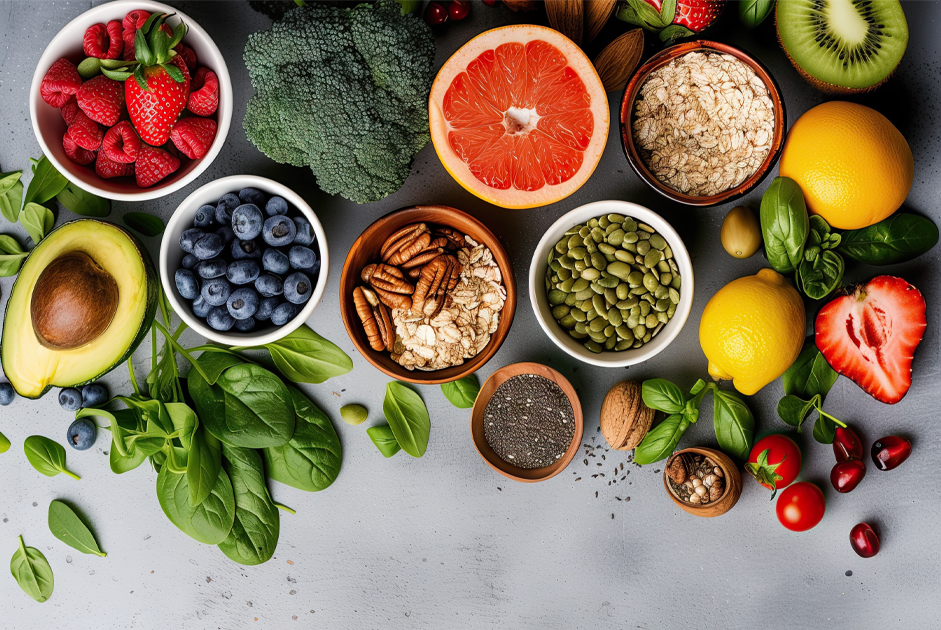With winter here, school in full swing and the holiday season around the corner, it’s no surprise we might start feeling run down and catch a cold or two. While we can’t avoid all sickness, there are lots of things we can do to help protect our immune systems – and those of our loved ones – this season.
Why A Balanced Diet Matters
Many of us know that eating a balanced diet keeps us healthy, and that includes keeping our immune system strong. Let’s review what a balanced diet looks like.
- Fruits and Vegetables: Aim for half of your plate to be fruits and vegetables. The saying “eat the rainbow” especially pertains to this food group. Each color provides your body with a variety of vitamins and minerals.
- Carbohydrates: Carbs are your body’s main source of energy. Aim to fill about a quarter of your plate with whole grains like brown rice, whole wheat bread or whole wheat pasta for the most nutrient-dense carbohydrates.
- Protein: The goal is to have about ¼ of your plate filled with protein. Protein can be found in meat, chicken, fish, beans and nuts. Try to limit red meat and processed meats such as bacon and sausage.
- Fats: Healthy fats should be consumed in moderation. Fats that are encouraged are oils such as avocado, olive, soy, peanut and canola, among others.
- Fluids: A good goal is eight to 12 cups of water per day; it is best to limit sugary drinks.
Key Nutrients to Keep You Feeling Your Best
While there is no magic diet for keeping sickness at bay, there are certain nutrients that can help keep your immune system strong. Here’s what to look for:
- Vitamin C-rich foods are found in citrus fruits, berries, bell peppers, tomatoes and kale.
- Zinc is best absorbed from animal-based foods such as beef and seafood but can also be found in wheat germ, beans, tofu and nuts.
- Vitamin D food sources are a little harder to find. Fatty fish, eggs and drinks fortified with vitamin D such as milk or 100% juice are good sources.
- Probiotics are “good” live bacteria that promote a healthy gut and can be found in cultured dairy products, like yogurt, and other fermented foods such as sauerkraut, kimchi or miso.
- Beta-carotene is found in mostly yellow, orange and green fruits and vegetables such as sweet potatoes, carrots, spinach, apricots and broccoli.
Don’t Forget About Overall Health
Nutrition is just one piece of the puzzle! Staying active, getting enough sleep and managing stress are also super important for your immune health.
Find a healthy way to cope with stress such as breathing exercises, walking, yoga or listening to music. Exercise not only helps with stress levels but can help prevent chronic diseases that could potentially weaken your immune system, as well. Lastly, a lack of sleep can greatly affect your immune health. Adults should aim for seven to nine hours of sleep per day for optimal health.
Taking care of your immune system doesn’t have to be complicated, and small, consistent changes can make a big difference. Focus on maintaining a balanced diet, incorporating immune-supporting nutrients and taking care of your overall health by managing stress, staying active and getting enough sleep. While we can’t always prevent getting sick, these habits will give your body the support it needs to stay as healthy as possible, no matter what the season brings.



















